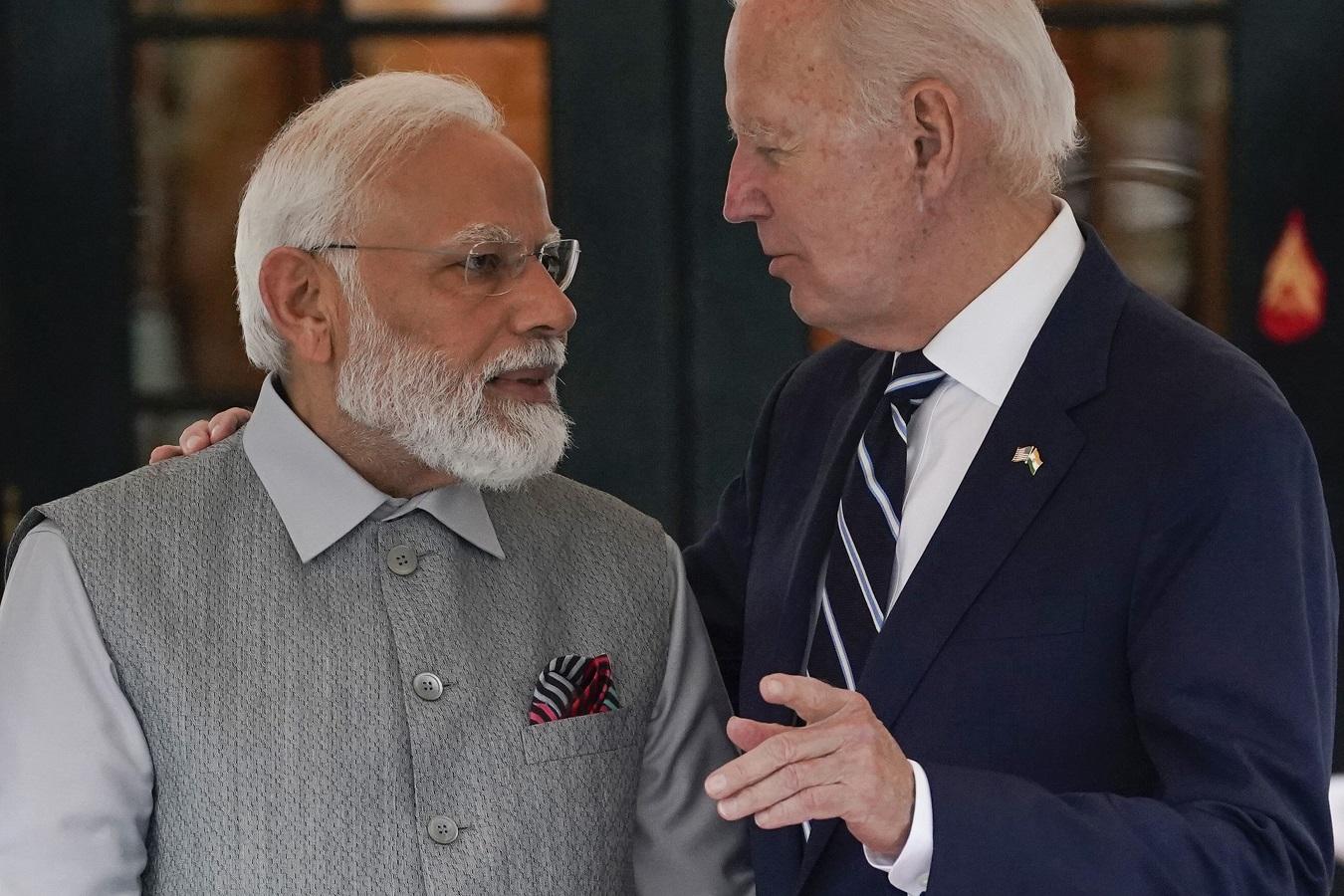Stating that technology will play a defining role in their bilateral partnership, India and the US have committed themselves to cooperation in areas ranging from responsible artificial intelligence (AI) and quantum computing to the entire value chain of the space economy.
The governments of the two countries will work to adopt policies and regulations that facilitate greater technology sharing, co-development, and co-production opportunities between US and Indian industry, government, and academic institutions.
According to the joint statement by the two countries, subjects like secure and trustworthy cyberspace, high-tech value chains, generative AI, and 5G and 6G telecom networks assumed strategic importance during the meeting between Prime Minister Narendra Modi and US President Joe Biden. The leaders have also agreed to undertake regular efforts to address export controls and explore ways of enhancing high-technology commerce.
India and the US recently signed a memorandum of understanding (MoU) on the semiconductor supply chain and innovation partnership as a significant step in the coordination of the two countries’ semiconductor incentive programmes.
The leaders also welcomed the proposal from semiconductor manufacturing firm Lam Research to train 60,000 Indian engineers through its Semiverse Solution virtual fabrication platform. American semiconductor firms Micron Technology and Applied Materials on announced investments in India.
Ashwini Vaishnaw, Union minister of communications, electronics and information technology, said Micron’s Assembly, testing, marking, and packaging (ATMP) — the first private semiconductor plant in the country — would start rolling out memory chips by December next month.
“Land allocation is done. It will be a massive factory, likely to spread across 30-40 acres. Its design has also been completed. The required regulatory agreements and compliances have been done. Its turnover at full capacity will be close to a billion dollars,” the minister told reporters.
The facility is expected to support around 5,000 direct jobs and 15,000 indirect ones as well as 200 smaller supplier units nearby.
The countries will sustain and grow quantum training and exchange programmes and work to reduce barriers to US-India research collaboration. Under a new arrangement between the US National Science Foundation (NSF) and India’s Department of Science and Technology (DST), both sides will fund joint research projects in computer and information science and engineering, cyber-physical systems, and secure and trustworthy cyberspace.
Furthermore, the NSF and India’s Ministry of Electronics and Information Technology will bring fresh funding for joint projects in applied research areas such as semiconductors, next-generation communication, cyber security, sustainability and green technologies and intelligent transportation systems.
The leaders also deliberated on the opportunities and significant risks associated with AI. They have committed themselves to developing joint and international collaboration on trustworthy and responsible AI, including generative AI, to advance AI education and workforce initiatives, promote commercial opportunities, and mitigate discrimination and bias.
Industry body Nasscom has welcomed the new tech partnership between India and the US.
“Mutually beneficial policy formulation and intervention, and adapting regulations that encourage technology sharing, co-development, and co-production opportunities among industry, government, and academic institutions (are a must) must for the foundation of this collaboration across defence, clean energy, telecommunications, emerging technologies like AI, quantum technologies, cybersecurity, sustainability, biotechnology, space technologies, and semiconductors,” Nasscom said in a statement.
On telecom equipment, the top leaders emphasised the need to put in place a “Trusted Network/Trusted Sources” bilateral framework. Two Joint Task Forces have been launched on advanced telecommunications, focused on Open RAN and research and development in 5G/6G technologies.
“We are partnering on Open RAN field trials and rollouts, including scaled deployments, in both countries with operators and vendors of both markets, backed by US International Development Finance Corporation (DFC) financing,” said the joint statement. This will be executed with public-private cooperation between vendors and operators and will be led by India’s Bharat 6G Alliance and the US Next G Alliance.
Biden and Modi set a course to reach new frontiers across all sectors of space cooperation. India has agreed to join the Artemis Accords (Accords), a National Aeronautics and Space Administration-led initiative for peaceful, sustainable and transparent cooperation in space.
The countries may encourage commercial collaboration in private-sector space tech enterprises in the entire value chain of the space economy to address export controls and facilitate technology transfer.
Note:- (Not all news on the site expresses the point of view of the site, but we transmit this news automatically and translate it through programmatic technology on the site and not from a human editor. The content is auto-generated from a syndicated feed.))



